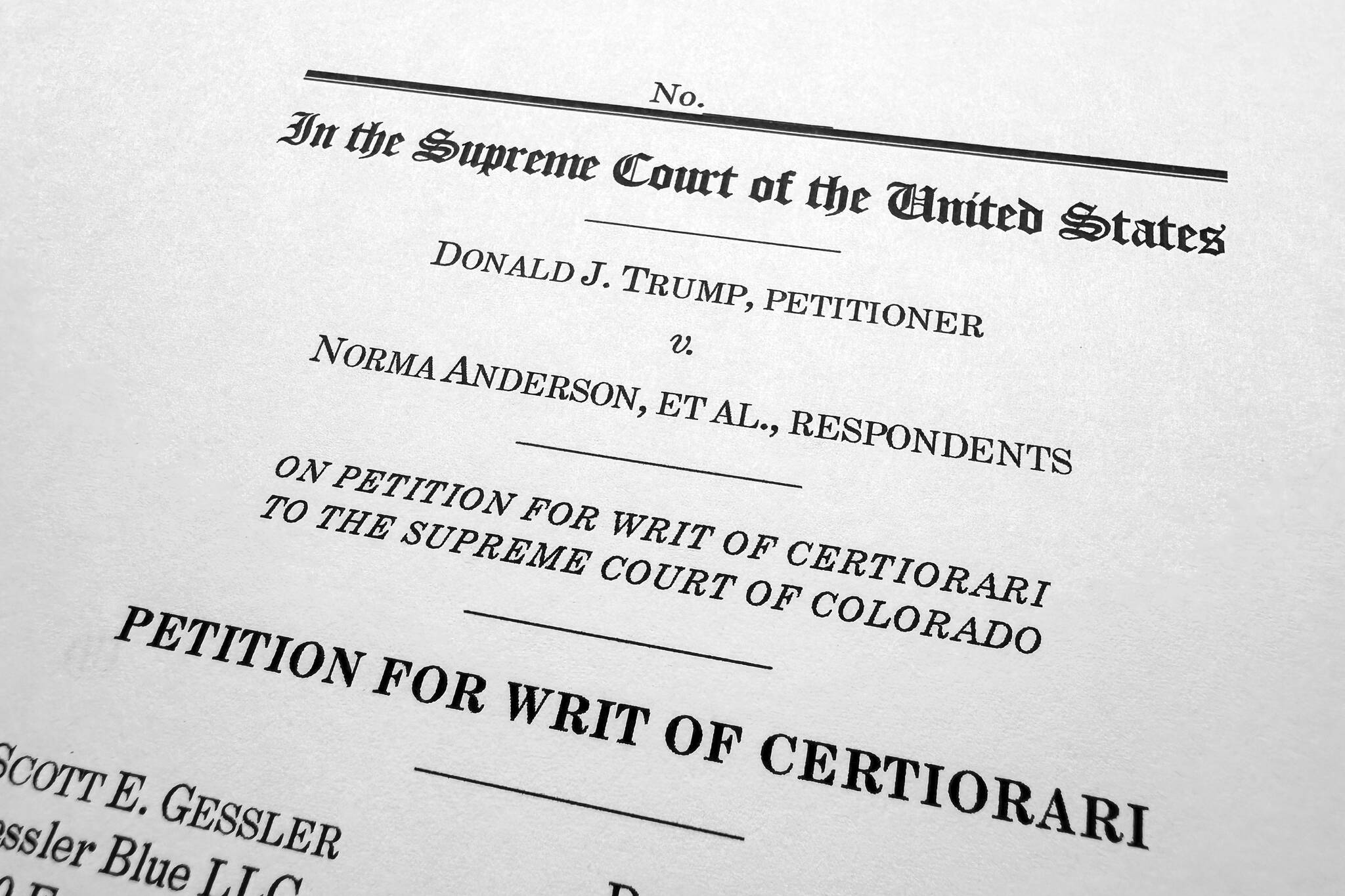In last week’s column about the insurrection-related cases heading to the U.S. Supreme Court, I only briefly mentioned the dozens of 14th Amendment lawsuits. Now there are two states that have ruled that Donald Trump’s role in the insurrection disqualifies him from being president.
Bringing this constitutional challenge to the courts isn’t a devious Democratic Party scheme. The conversation began in earnest last August after the University of Pennsylvania Law Review published a paper written by William Baude and Michael Stokes Paulsen. Both men are prominent constitutional scholars affiliated with the conservative Federalist Society.
Their 124-page legal analysis can be summed up in this nutshell. “If the public record is accurate,” the case against Trump “is not even close. He is no longer eligible to the office of Presidency, or any other state or federal office covered by the Constitution.”
The Colorado Supreme Court reached that conclusion two weeks ago. As did the Secretary of State in Maine late last week. Notably in the Colorado ruling, the three dissenting judges didn’t even challenge the finding of the court’s majority that Trump had engaged in an insurrection.
In between those two decisions, Sen. Lisa Murkowski worried it’s “going to be dangerous if it is viewed by the people that the courts have denied them the opportunity to vote for somebody that they want to vote for.”
But it’s conceivable the nation’s highest court will ensure Congress has the last word.
“The Fourteenth Amendment entrusts Insurrection Clause questions to Congress,” wrote the attorneys who submitted an amicus brief in opposition to the lawsuit in Colorado. Gov. Mike Dunleavy made sure Alaska was one of 19 states they were representing.
On that basic point, they’re right. But they get it wrong by arguing “The voters first will decide whether President Trump is legally qualified to be reelected as President.” And if “Congress concurs, then the Constitution does not contemplate a time for the judiciary to second-guess that call.”
It’s worth noting here that three years ago Dunleavy was eager to support a lawsuit that asked the U.S. Supreme Court to throw out millions of ballots in four states that Trump lost. Now he wants the courts to respect the voice of Republican voters who think the 2020 election was stolen, the insurrection was instigated by the FBI, and the prosecutions of those involved in it were politically motivated.
Empowering the voters to decide Trump’s fate is similar to the rationale offered by Sen. Dan Sullivan when he voted to acquit him of the impeachment charge. He thought “the American people are well equipped” to decide if he should be disqualified. The irony now is that had he and ten other senate Republicans voted to convict Trump, as Murkowski did, the courts wouldn’t be considering these Fourteenth Amendment challenges.
In Sullivan’s defense, he and his cohorts probably banked on an unspoken assumption that most Republican voters understood what happened on Jan. 6 and would overwhelmingly reject Trump’s candidacy if he ran again.
Dunleavy, on the other hand, has proudly endorsed Trump. Maybe, like so many others, he swallowed the bait and barbed hooks of his endless lies. Or maybe he knows none of it is true, but doesn’t care that Trump has been getting away with lying to them for three years.
Either way, it’s a poor reflection on Dunleavy’s integrity. And on the attorneys who argued that America’s misinformed electorate should be endowed with a role in such a monumental constitutional decision.
The authors and ratifiers of the Fourteenth Amendment knew better. That’s why they decided that only “Congress may by a vote of two-thirds of each House” restore Trump’s eligibility for office.
But first the U.S. Court of Appeals and Supreme Court must uphold the rule of law by expeditiously denying Trump’s motions to dismiss the criminal indictments against him. The full record of evidence presented at his trial will then be available to the Supreme Court to rule on whether the events of Jan. 6 did indeed constitute an insurrection. If so, they could leave the ultimate disqualification question to Congress.
If that happens, Republicans alone won’t be able to muster the two-thirds vote Trump needs. And they’ll have a much harder time ignoring their conscience while keeping the truth of his “high crimes” from their constituents.
• Rich Moniak is a Juneau resident and retired civil engineer with more than 25 years of experience working in the public sector. Columns, My Turns and Letters to the Editor represent the view of the author, not the view of the Juneau Empire. Have something to say? Here’s how to submit a My Turn or letter.

